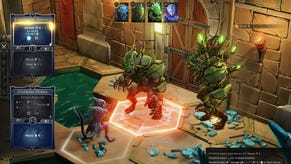Social gaming survey reveals key trends among players
Average user is 43 year old female; 35% say consumption has increased in last 3 months
A survey of social game users in the US and UK has discovered that - contrary to the typical gamer profile - the average social gamer is a 43 year old female.
According to the survey's findings, 55 per cent of social gamers are female, while 46 per cent of American respondents were aged 50 and above. That figure dropped to 23 per cent in the UK. Just 6 per cent of gamers surveyed were aged below 21.
The study - carried out by the Information Solutions Group on behalf of PopCap Games - was an online one completed by almost 5000 people. Of those 5000, 1202 - 24 per cent - said that they played social games for more than 15 minutes a week. Those were the people who were quizzed for the survey.
Female gamers, the study found, were more likely to play social games with real-world friends than male gamers were - 68 per cent of them compared to 56 per cent of males. While males were more inclined than females to play online with strangers - 41 per cent compared to 33 per cent.
The vast majority - 95 per cent - said they played social games multiple times per week, while 64 per cent said they played at least once a day.
61 per cent said the length of an average gaming session was over half an hour, while 1 in 10 said an average session lasted for over three hours.
And 35 per cent said their consumption of social games had increased over the last three months, compared to 10 per cent who said it had decreased.
Facebook was named as the most popular destination for social gamers with 83 per cent saying it was the site they used for gaming. 24 per cent said they play on MySpace, 7 per cent said Bebo and 5 per cent used Friendster.
Nearly half of respondents (49 per cent) said they log into social network sites specifically to play games.
53 per cent of the gamers said they've earned and/or spent virtual currency in a social game, while 28 per cent had purchased virtual currency with real money and 32 per cent had purchased a virtual gift.
However, a quarter said that they'd been misled by an ad or other 'special offer' tied into a social game they've played at some point.
"This study establishes social games as a fast-growing and quickly maturing pastime for an enormous portion of the population," noted Robin Boyar, founder and principal at Thinktank Research.
"And with more than 80 per cent of social gamers stating that playing social games strengthens their relationship with friends, family and colleagues, social gaming reinforces the core appeal of social networks."







